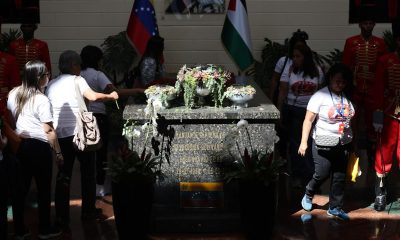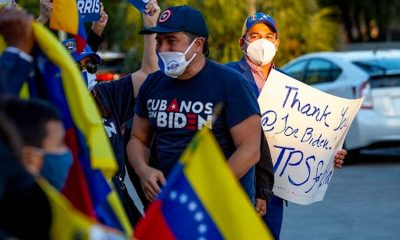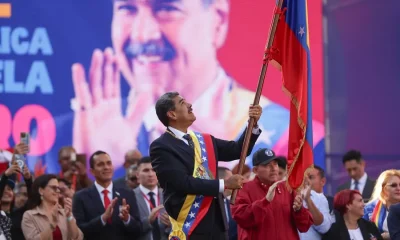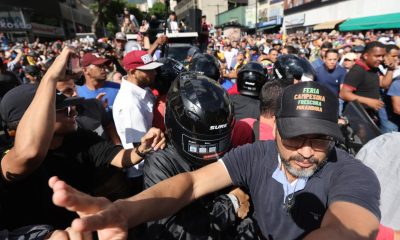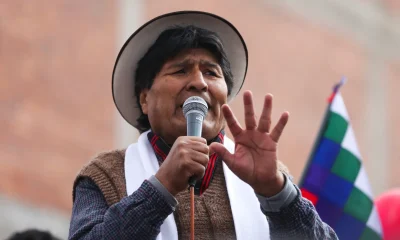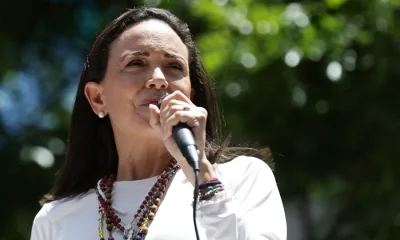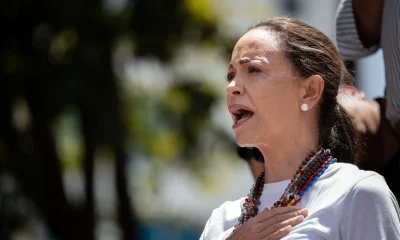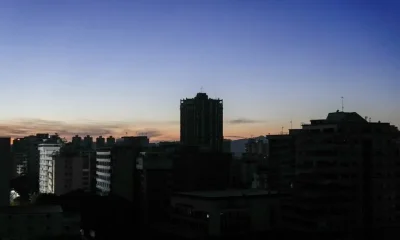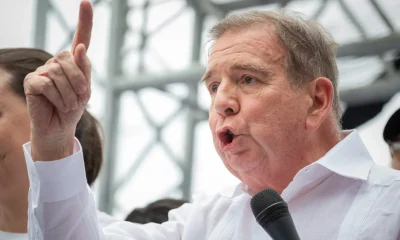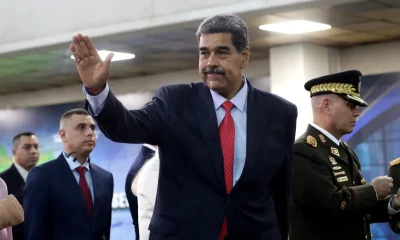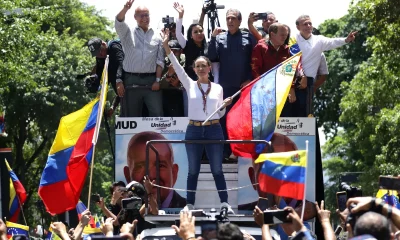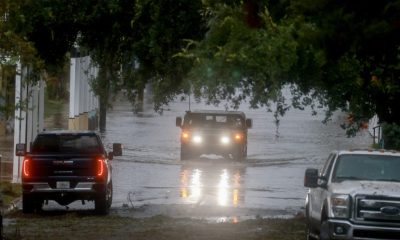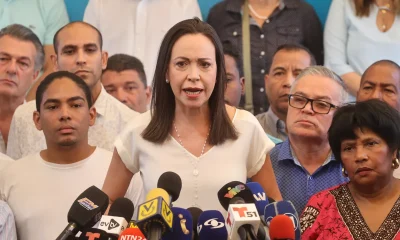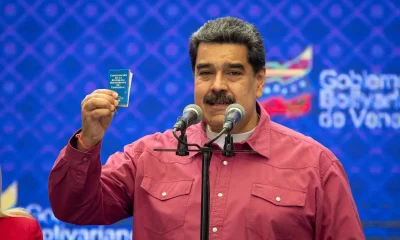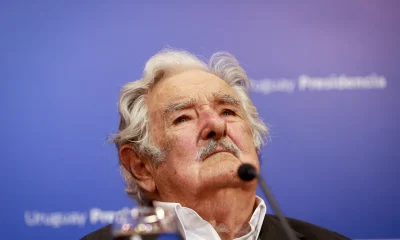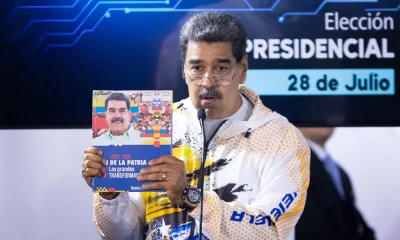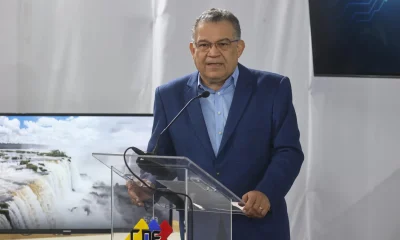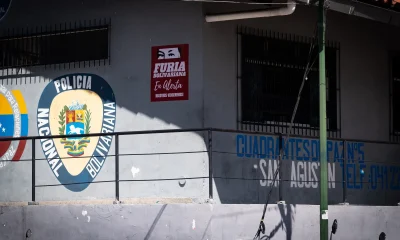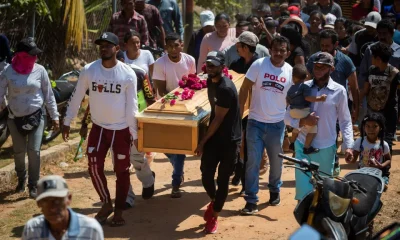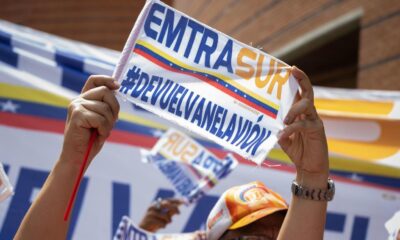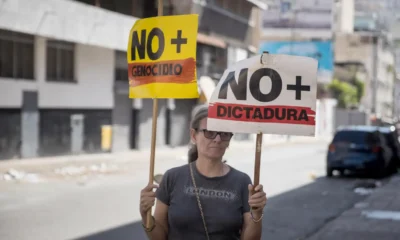International
Venezuela shows evidence of fraud in primary event
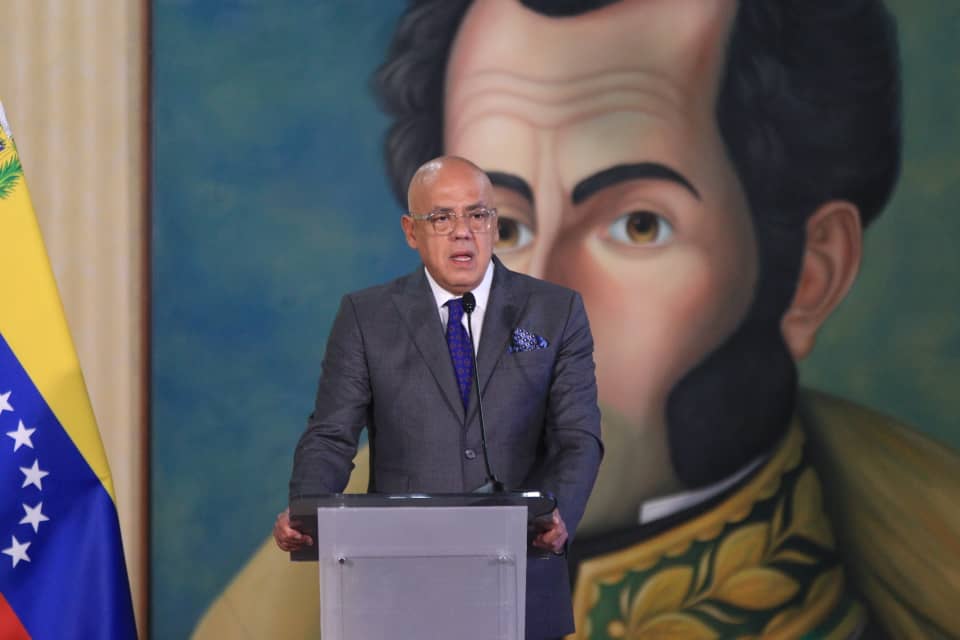
October 27 |
The president of the National Assembly (AN) of Venezuela, Jorge Rodríguez, met in Caracas with representatives of the diplomatic corps accredited in the country and exposed details of the agreements assumed by the National Government and a sector of the opposition to contextualize the evidence of the fraudulent primary event that took place last October 22.
He referred that recently the National Government signed in the capital of Barbados with representatives of the oppositions two agreements: one related to the political and electoral conditions, with a view to the presidential election of 2024, and the other which expressed the firm intention to defend the territorial integrity of Venezuela and to defend the Venezuelan patrimony and assets that are abroad.
He pointed out that the first of them seeks that the results of that election be shared by all and that they may be fair, verifiable and supported by the goodness and strengths of the national electoral system, considered one of the most reliable, efficient and fast in the world. All this was embodied in this agreement, he emphasized.
He reminded that it is a robust and reliable automated system, and throughout it there are 18 audits (including the inspection by experts of the machines, the software, the electoral registry, the machine set to zero on the day of the elections and the voting records, among many others).
He explained that in one of its paragraphs, the agreement on the elections makes it clear that these conditions will be applied to the rest of the electoral processes to be carried out in the country.
He emphasized that political parties in Venezuela are subject to public scrutiny and to the provisions of the Constitution and electoral laws, such as the Organic Law of Electoral Processes, the Comptrollership Law and others. He made clear that these parties “are not secret brotherhoods, they are not private companies, they are not anonymous companies” and must adhere to the mandate of the law.
In addition to these standards, during the signing of the agreements it was defined that the National Electoral Council (CNE) is the only entity legally vested in the country to summon, organize and carry out elections of any kind and thus avoid any irregularity.
He added that on two occasions the NEC communicated with the organizations with political purposes which conform the so called Unitary Platform and on both occasions this sector refused to allow the NEC to organize the election.
He questioned the refusal of this sector to use the voting centers and tables, the electronic machines and all the support usually provided by the CNE. He assured that this could only be explained because a fraud of incalculable proportions had been organized.
He denounced that there were no voting centers and people did not know where to go to vote. Very few were known to exist and with very vague coordinates. On the other hand, 30 percent of the voting centers were inside private residences.
He commented that then began to appear denunciations of candidates and resignations of members of the boards of this primary event in the states, among them the vice-president of the national commission of the event, who claimed the participation of the CNE in this process.
She said that the resignations of candidates prevented the election from being participatory. How can an election be competitive if there is only one candidate left with possibilities, since two others resigned, she asked. He assured that what happened on Sunday, October 22 cannot be considered an election. It does not have any quality or verifiability.
He commented that another candidate explained that there were no voting centers, it was not known who the witnesses were and the audited electoral material had not arrived, among other irregularities. He said that weeks before the primary event, a private company called Súmate -owned by María Corina Machado- hijacked the primary event and, for example, created mega voting centers -with 6,000, 10,000 voters, for example- which prevented thousands of voters from voting.
He affirmed that 25 percent of the 5,000 voting tables were never installed. He emphasized that the objective of all this was to create agglomeration and irritation among his own followers, in addition to trying to mediatically implant an opinion matrix favorable to anxiety and to politically annihilate the parties that signed the agreements in Barbados.
There is no election if you cannot present medium or minimally reliable results, said Rodriguez.
International
Epstein Denies Being ‘the Devil’ in Newly Released Video Interview
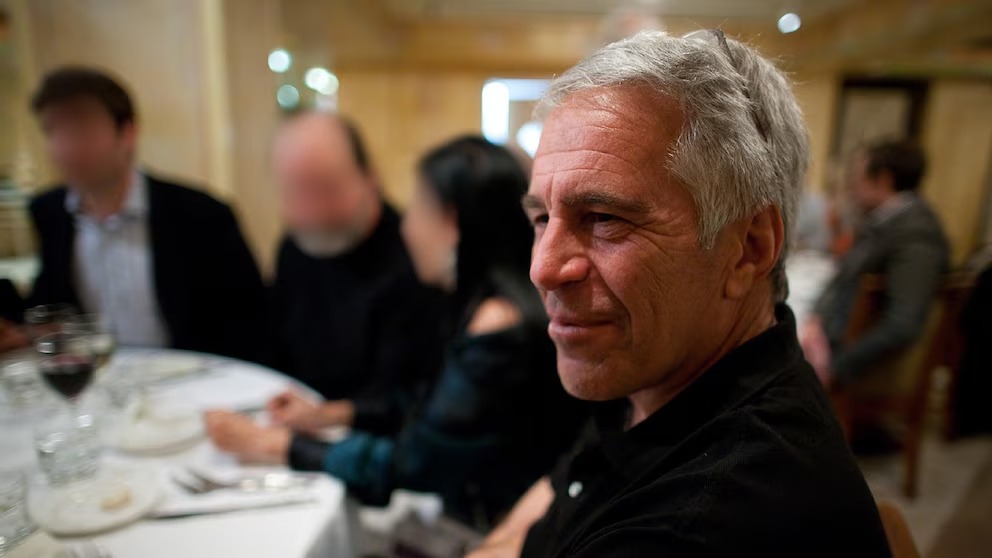
Jeffrey Epstein claims he was the least dangerous type of sex offender and denied being “the devil” in a video interview included in the latest batch of documents released over the weekend by the U.S. Department of Justice.
The roughly two-hour interview was conducted by Steve Bannon, a former adviser to U.S. President Donald Trump, and appears to have been recorded at the late financier’s New York residence on an unknown date.
Epstein died by suicide in 2019 while in jail awaiting trial on sex trafficking charges involving minors. Since December, the U.S. government has released millions of documents related to the case under transparency laws.
“Do you think you’re the devil incarnate?” Bannon asks Epstein in the video interview revealed in the latest release.
“No, but I do have a good mirror,” Epstein replies with a smile, wearing a black shirt and glasses. When pressed again, he adds, “I don’t know. Why would you say that?”
Epstein, who pleaded guilty in 2008 to soliciting a minor for prostitution, also appears to downplay the seriousness of his conviction.
He objects when Bannon refers to him as a “Level Three sexual predator,” a classification in the United States indicating a very serious threat to public safety.
“No, I’m the lowest,” Epstein says.
“But still an offender,” Bannon responds.
“Yes,” Epstein replies.
The exchange comes after Bannon asks Epstein whether he considers his wealth to be “dirty,” suggesting it was earned by advising “the worst people in the world.”
Epstein insists that he made his money legally, while acknowledging that “ethics is always a complicated issue.”
He claims he donated money to help eradicate polio in Pakistan and India, apparently in an attempt to justify the origins of his fortune.
The documents also show that Bannon maintained regular correspondence with Epstein, who offered to help the far-right political figure spread his conservative ideology in Europe.
Since Trump took office in January 2025, U.S. authorities have released millions of pages related to Epstein, along with photos and videos.
These materials have shed new light on Epstein’s ties to high-profile business executives such as Microsoft co-founder Bill Gates, celebrities including filmmaker Woody Allen, and academics and political figures, among them Trump and former President Bill Clinton.
International
Hypothermia Linked to Most Deaths During New York’s Recent Cold Spell
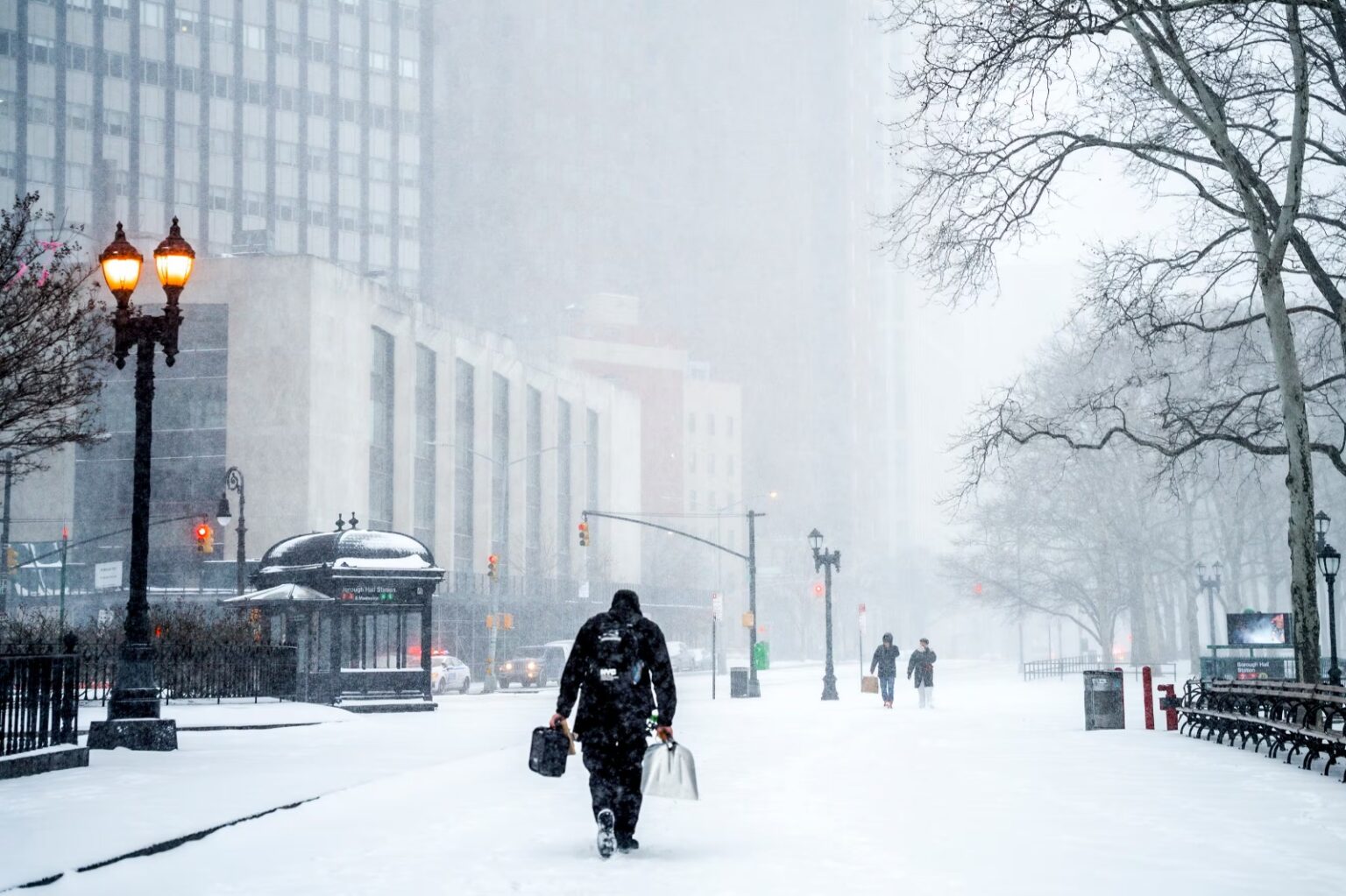
Hypothermia “played a role” in 13 of the 16 deaths recorded in New York City during the recent period of extreme cold, Mayor Mandami said at a press conference. Three of the deaths were classified as drug overdoses.
None of the individuals were sleeping on the streets at the time of their deaths, the mayor added, noting that some had previously been in contact with emergency shelter services.
Mandami said the city has activated emergency warming centers and deployed a fleet of 20 vehicles staffed with medical personnel to respond to the cold weather crisis.
“As of this morning, we have made more than 930 referrals to shelters and safe facilities. We have also involuntarily transported 18 New Yorkers who were deemed a danger to themselves or others,” he said.
According to official statistics, New York City recorded between nine and 27 cold-related deaths per year from 2005 to 2021. That number rose to 34 in 2021 and climbed further to 54 in 2022.
City Comptroller Mark Levine estimated that there are “tens of thousands” of homeless New Yorkers, “most of them families with children.”
He said that “nearly 95%” of the city’s homeless population lives in municipal shelters.
In August 2021, those shelters housed 44,586 people, the “lowest daily population in nearly a decade,” according to official data.
However, the shelter population increased from 22,955 to 62,679 people between January 2000 and January 2020, highlighting the long-term growth of homelessness in the city.
International
NFL Investigating Emails Linking Giants Executive to Jeffrey Epstein
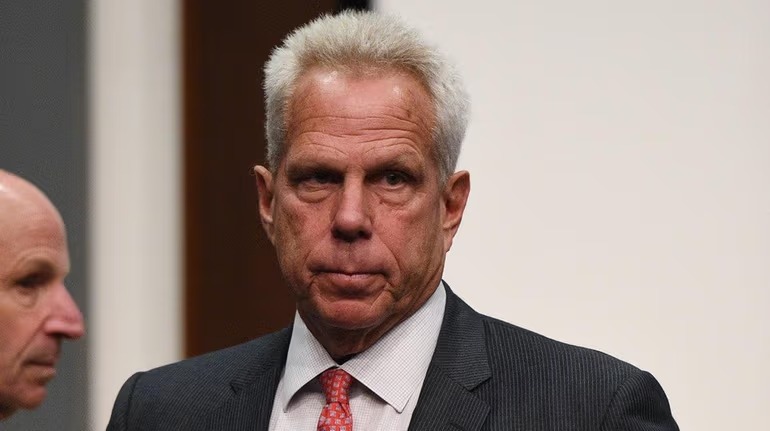
NFL Commissioner Roger Goodell said on Monday that the league will “examine all the facts” regarding contacts between New York Giants co-owner Steve Tisch and Jeffrey Epstein, revealed in documents recently released about the late convicted sex offender.
The batch of files, made public on Friday by the U.S. Department of Justice, includes emails suggesting that Epstein introduced several women to Tisch.
Tisch, a film producer who has never been charged in connection with Epstein, issued a statement last week denying any wrongdoing.
“I had a brief relationship in which we exchanged emails about adult women, and we also discussed film, philanthropy, and investments,” Tisch said of his correspondence with Epstein, which dates back to 2013.
“I did not accept any of his invitations and never went to his island. As we all now know, he was a terrible person and someone I deeply regret having associated with,” he added.
Speaking at a press conference in San Jose, California, on Monday, Goodell said the NFL would carefully review the details of the ties between Tisch and Epstein.
“We’re going to examine all the facts,” the commissioner said. “We’re going to look at the context of those exchanges, try to understand them, and see how that fits within the league’s policies.”
Tisch, 76, could face disciplinary action under the NFL’s strict personal conduct policy, even if he is not found guilty of a crime.
“We’re going to take this step by step. First, let’s gather all the facts,” Goodell said at the press conference, which was part of the events leading up to Sunday’s Super Bowl between the Seattle Seahawks and the New England Patriots.
-

 International5 days ago
International5 days agoU.S. Senate Rejects Budget, Bringing Government Closer to Shutdown Amid DHS Dispute
-

 Central America4 days ago
Central America4 days agoPanama Supreme Court Strikes Down Panama Ports Concession as Unconstitutional
-

 Central America4 days ago
Central America4 days agoU.S. and Guatemala Sign Trade Deal Granting Zero Tariffs to Most Exports
-

 International5 days ago
International5 days agoStorm Kristin Kills Five in Portugal, Leaves Nearly 500,000 Without Power
-

 International5 days ago
International5 days agoMan Arrested After Vehicle Crashes Into Jewish Institution in Brooklyn
-

 International5 days ago
International5 days agoTrump Says Putin Agreed to One-Week Halt in Attacks on Ukraine Amid Extreme Cold
-

 International2 hours ago
International2 hours agoSpain Seeks to Ban Social Media Access for Children Under 16
-

 Central America2 days ago
Central America2 days agoCosta Rica Goes to the Polls as Voters Choose Continuity or Change
-

 International2 hours ago
International2 hours agoMexico to Send Humanitarian Aid to Cuba Amid U.S. Threats Over Oil Shipments
-

 International2 hours ago
International2 hours agoHypothermia Linked to Most Deaths During New York’s Recent Cold Spell
-

 International2 hours ago
International2 hours agoPetro Resumes Extraditions, Sends Top Criminal to U.S. Before White House Talks
-

 International2 hours ago
International2 hours agoMexico Arrests Suspect in Shooting of Sinaloa Lawmakers
-

 International2 hours ago
International2 hours agoEpstein Denies Being ‘the Devil’ in Newly Released Video Interview
-

 Central America2 hours ago
Central America2 hours agoLaura Fernández Says She Will ‘Never’ Allow Authoritarianism in Costa Rica
-

 International2 hours ago
International2 hours agoNFL Investigating Emails Linking Giants Executive to Jeffrey Epstein





























